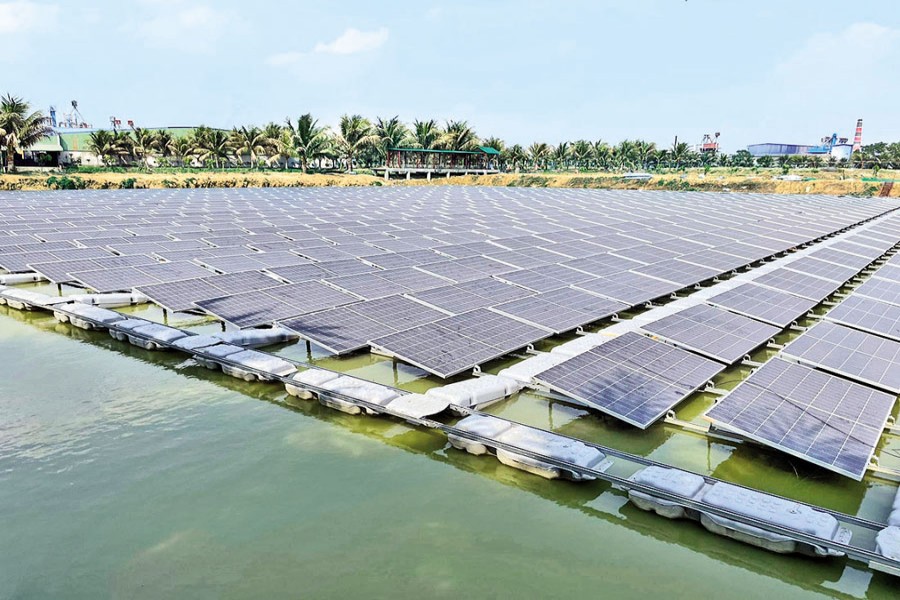
Published :
Updated :

IDCOL has financed a commercial floating solar project with a capacity of 784 kWp, in a significant step towards expanding the country's solar energy intervention.
The project utilises the unused space of an artificial water body that was previously used solely for fish farming. This project marks the first large-scale grid-connected floating solar PV system in Bangladesh, says a press release.
IDCOL has provided concessionary financing for the project, along with technical assistance. Commercial floating solar is a unique project, similar to other exemplary solar initiatives undertaken by IDCOL. The project aims to address the challenges posed by land scarcity, while diversifying the energy mix of industrial sectors and accelerating their decarbonisation.
Floating solar panels will help reduce water evaporation, thus facilitating water conservation. The presence of water underneath the panels also lowers the PV panel temperature, resulting in an increase in electricity generation by 6-10%.
Despite its enormous potential, previously, only a pilot case of a 10-kW floating solar PV system was installed on a pond in the municipality of Mongla, Bagerhat.
The floating solar project is located on the water surface of a pond situated on the premises of Nawab Auto Rice and Feed Mills Ltd. in Chapainawabganj. The pond covers an area of 22,000 square metres.
This project is a classic example of the Food-Energy nexus, where electricity is co-generated alongside fish farming. The project consists of numerous solar panels mounted on specially designed floating platforms. These panels will generate clean electricity without impacting fish production.
The clean energy produced will contribute to the country's efforts in meeting its sustainable development goals and combating climate change.
Being a riverine country, Bangladesh has immense prospects for floating solar projects.
This project in Bangladesh sets a precedent for pressing issues such as land scarcity and clean energy. Its successful implementation could inspire similar initiatives, fostering the growth of floating solar technology and accelerating the country's transition toward renewable energy sources.


 For all latest news, follow The Financial Express Google News channel.
For all latest news, follow The Financial Express Google News channel.